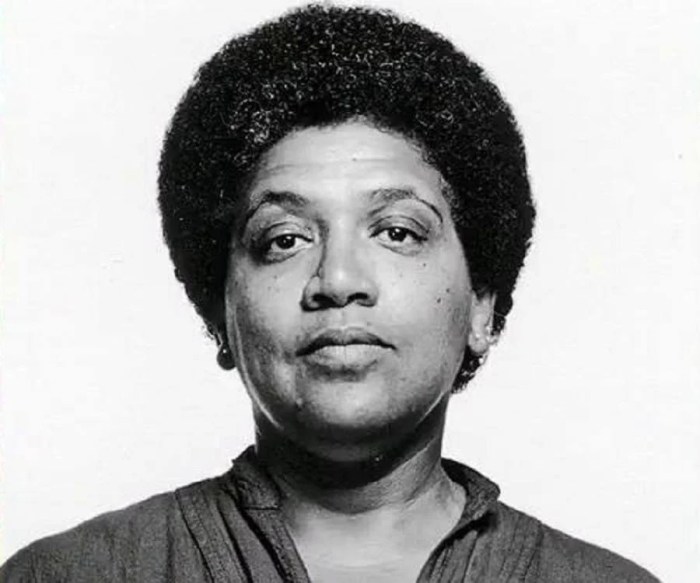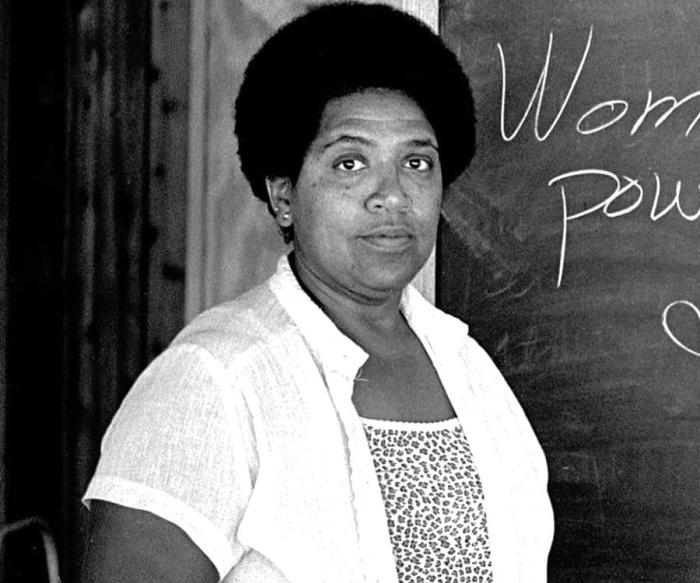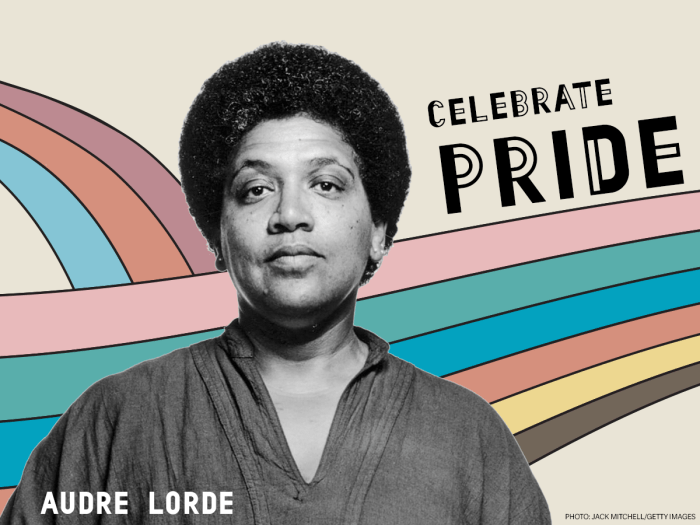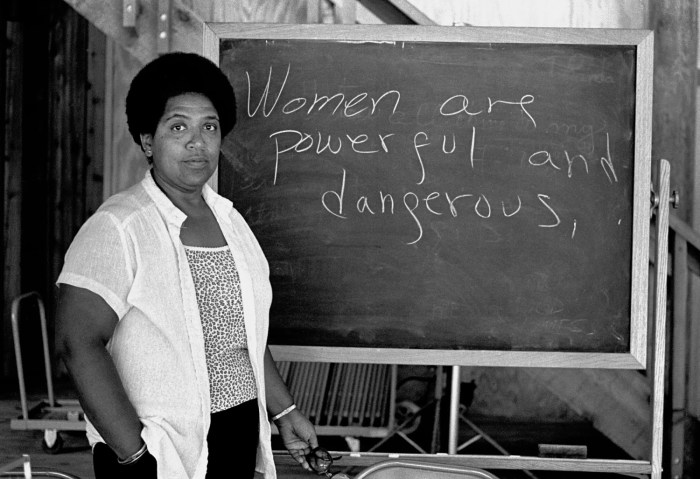Audre lorde age race class – Audre Lorde’s work as a Black, lesbian, feminist writer is a powerful exploration of the intersections of identity, challenging societal norms and sparking important conversations about ageism, race, and class.
Lorde’s writing and activism were deeply shaped by her own experiences, and she used her voice to amplify the voices of marginalized communities, shedding light on the ways in which these intersecting identities impact our lives.
Audre Lorde’s Identity and Experiences

Audre Lorde’s unique perspective as a Black, lesbian, feminist writer shaped her experiences and activism. Her writing often explored the intersections of race, gender, and sexuality, highlighting the ways in which these identities shaped her experiences and the experiences of others.
Personal Experiences and Writing
Lorde’s personal experiences with racism, sexism, and homophobia had a profound impact on her writing. Her poetry and essays often reflected her experiences as a marginalized individual, exploring themes of oppression, resistance, and survival. For example, in her poem “A Litany for Survival,” she writes about the pain and anger she feels as a Black woman in a racist society.
Ageism and Audre Lorde: Audre Lorde Age Race Class

Audre Lorde confronted ageism in her work and life by challenging societal perceptions of aging. She wrote about the experiences of older women, who are often marginalized and devalued in society. In her poem “The Age of Women,” she writes:>We are the ones who have seen the seasons change>Who have watched our children grow and leave us>Who have known the pain of loss and the joy of new beginnings>We are the ones who have lived through wars and revolutions>Who have witnessed the best and worst of humanity>We are the ones who have wisdom and experience to share>We are the ones who are still hereLorde’s writing celebrates the strength and resilience of older women.
She challenges the idea that aging is something to be feared or ashamed of. Instead, she argues that aging is a natural part of life that should be embraced.
Lorde’s Personal Experiences with Ageism, Audre lorde age race class
Lorde experienced ageism firsthand. She was often criticized for being too old to be a poet or a feminist. However, she refused to let ageism define her. She continued to write and speak out against injustice, even as she got older.In
her essay “The Cancer Journals,” Lorde writes about her experience with breast cancer. She describes how she was treated differently by doctors and nurses because she was an older woman. She also writes about how she had to fight for her own voice in the medical system.Lorde’s
experiences with ageism helped her to develop a deep understanding of the challenges faced by older women. She used her writing to challenge societal perceptions of aging and to advocate for the rights of older people.
Race and Intersectionality in Lorde’s Work

Race played a central role in Audre Lorde’s writing and activism. She believed that race, along with gender and class, were intersecting systems of oppression that shaped the experiences of marginalized people.
Lorde’s work often addressed the intersections of race, gender, and class. In her essay “The Master’s Tools Will Never Dismantle the Master’s House,” she argues that the tools of white supremacy, such as racism and sexism, cannot be used to dismantle the system of oppression that created them.
Race and Identity
Lorde’s work also explored the complex relationship between race and identity. She argued that race was a social construct that was used to divide people and maintain power. She believed that it was important for people of color to embrace their own identities and to challenge the stereotypes that were imposed on them.
Race and Class
Lorde also wrote about the intersections of race and class. She argued that racism and classism were interconnected systems of oppression that worked together to create and maintain inequality. She believed that it was important for people to understand the ways in which these systems intersected and to work together to dismantle them.
Audre Lorde’s groundbreaking work on the intersections of age, race, and class has resonated with generations. Her insights into the complexities of identity and oppression continue to inspire. In the spirit of her legacy, the article un match fait au paradise explores the ways in which Audre Lorde’s ideas remain relevant and impactful in today’s world.
Class and Economic Justice in Lorde’s Writing

Audre Lorde’s writings explore the complex intersections of class and economic inequality with other forms of oppression, particularly in the lives of marginalized communities. Her work critiques capitalism and its impact on the oppressed, highlighting the ways in which economic disparities exacerbate social and political inequalities.
Critique of Capitalism
Lorde’s critique of capitalism centers on its inherent exploitation and commodification of human beings. She argues that capitalism creates a system where the wealthy and powerful accumulate wealth at the expense of the poor and marginalized, leading to vast economic disparities and social injustice.
- In “The Cancer Journals,” Lorde writes about the dehumanizing effects of medical treatment on marginalized patients, particularly those from low-income backgrounds. She argues that the profit-driven healthcare system prioritizes profits over patient well-being.
- In “Sister Outsider,” Lorde critiques the capitalist commodification of women’s bodies, particularly in the sex industry and reproductive healthcare. She argues that capitalism exploits women’s labor and bodies, perpetuating systems of oppression and inequality.
Impact on Marginalized Communities
Lorde’s work highlights the disproportionate impact of class and economic inequality on marginalized communities, including women, people of color, and LGBTQ+ individuals. She argues that these communities often face multiple forms of oppression, including economic discrimination, poverty, and lack of access to resources.
- In “The Master’s Tools Will Never Dismantle the Master’s House,” Lorde discusses the ways in which economic inequality perpetuates racism and sexism, arguing that it is impossible to dismantle systems of oppression without addressing their economic roots.
- In “Poetry is Not a Luxury,” Lorde emphasizes the importance of art and activism in challenging economic injustice, arguing that poetry can be a powerful tool for raising awareness and mobilizing for social change.
Helpful Answers
What was Audre Lorde’s significance as a writer and activist?
Audre Lorde was a groundbreaking writer and activist who explored the intersections of identity, challenging societal norms and sparking important conversations about ageism, race, and class.
How did Lorde’s personal experiences shape her work?
Lorde’s writing and activism were deeply shaped by her own experiences as a Black, lesbian, feminist woman. She used her voice to amplify the voices of marginalized communities, shedding light on the ways in which these intersecting identities impact our lives.
What was Lorde’s critique of capitalism?
Lorde critiqued capitalism for its role in perpetuating class and economic inequality, arguing that it disproportionately impacts marginalized communities.

